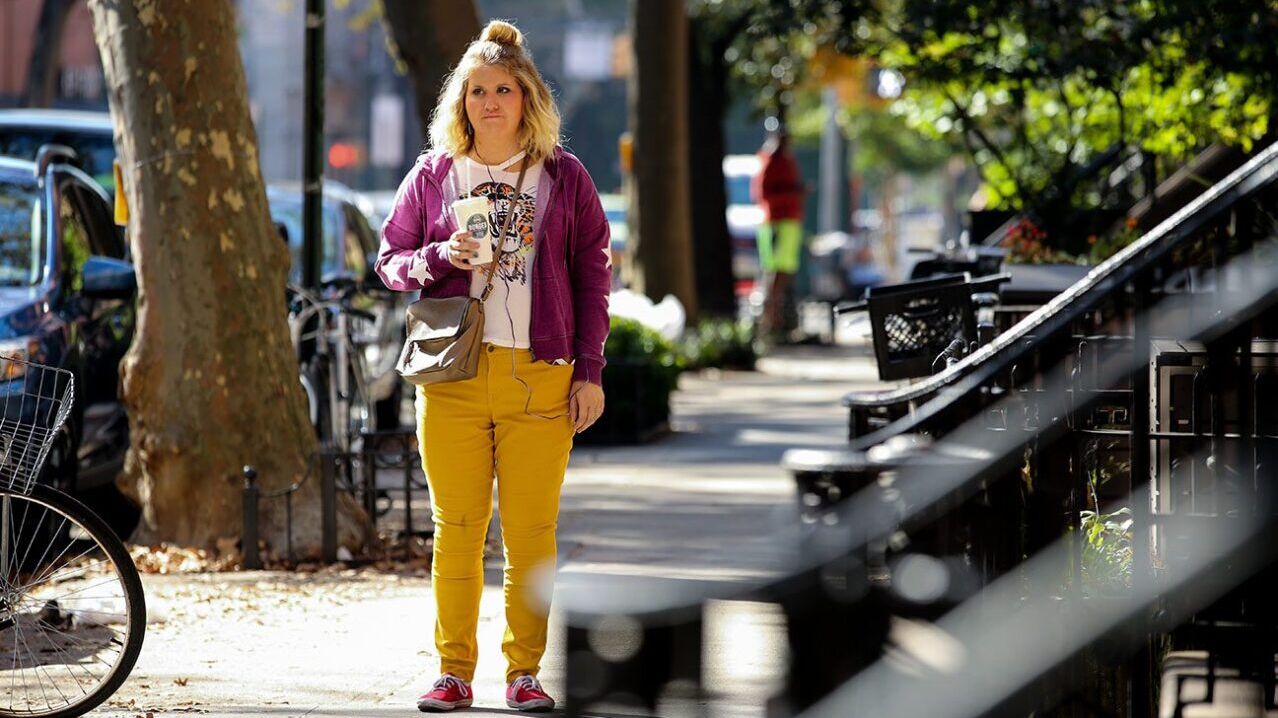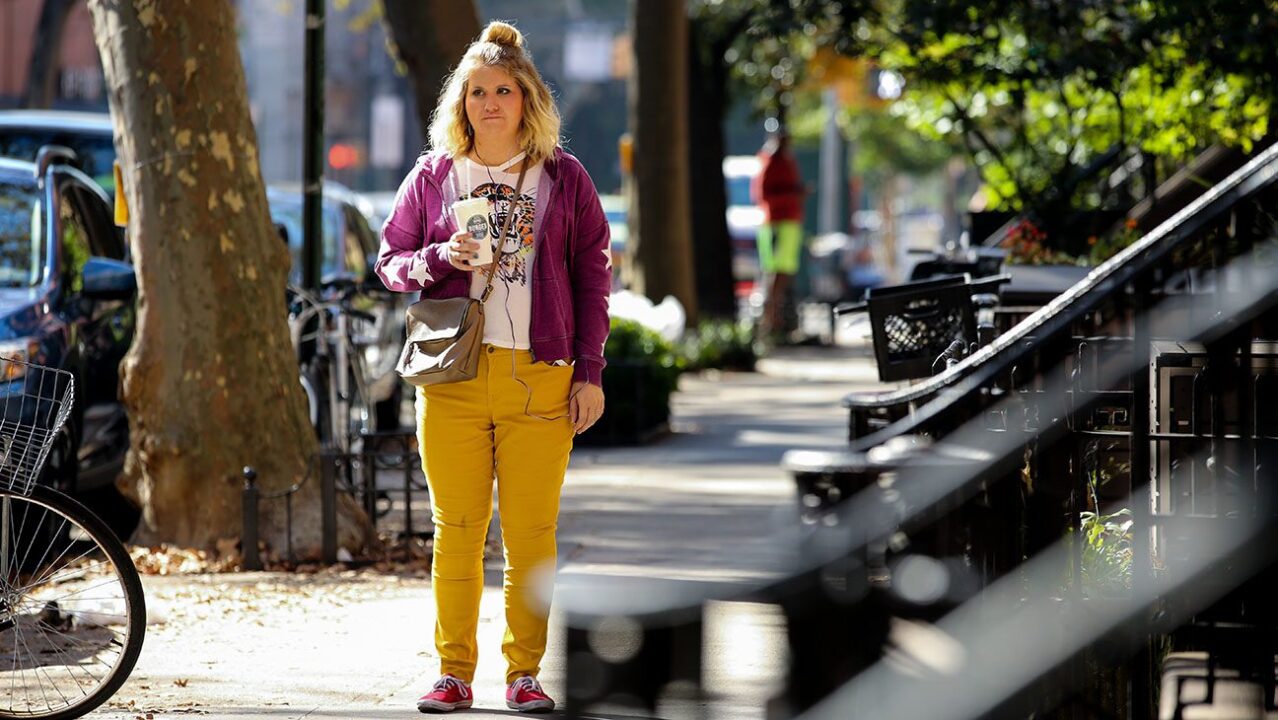BRITTANY RUNS A MARATHON (2019)
Starring Jillian Bell, Jennifer Dundas, Patch Darragh
Directed by Paul Downs Colaizzo
Written by Paul Downs Colaizzo
Distributed by Amazon Studios. 103 minutes. Opening 8/23 at ArcLight Hollywood and The Landmark.
Director Paul Downs Colaizzo describes his first feature, Brittany Runs a Marathon, as “the story of everyone who, in their late twenties, thought ‘Ehh, I can do better. I want to do better.’” With a description that relatable, it’s easy to see how this humble dramedy took home the Sundance U.S. Dramatic Audience Award. There isn’t one among us who hasn’t passed through a period of dissatisfaction with our lives and habits. And Brittany, the titular character of this NYC comedy, is 27, an age which entails maximal levels of angst for many, as the thousand possible life paths to try at that age can make each step feel questionable.
The film digs into that persistent buzz of dissatisfaction and indecision and the ways in which it wears a person down, even a person as good-humored and clever as Brittany. At first glance, the film may look like a typical party girl grows up comedy, but its surprisingly rich exploration of anxiety and self-worth, combined with Jillian Bell’s note-perfect performance, makes this one of the most character-driven dramedies of the decade.
One element of the film that will surely generate much celebration, as well as some fair critique, is Brittany’s relationship to her body and weight. As the film opens, Brittany is a witty theater box office attendant who parties hard. However, we soon learn that, much as she loves to make others laugh, her comic persona is born from insecurity. As a self-described “fat sidekick” to an Instagram influencer bestie, she fights her discomfort with her physical presence by perfecting her comic presence. For Brittany, comedy is the key to belonging and desirability. But her ability to turn everything into a joke means that, while she’s a fantastically entertaining protagonist, she’s less fantastic at sincere conversations.
Her problems come to a head when a doctor alerts her to the ways her current life, drenched in anxiety and alcohol, is failing her. She has high blood pressure and is risking liver damage. The doctor suggests various changes, including weight loss.
One bothersome element is this scene’s emphasis on BMI and goal weights to gauge Brittany’s health. BMI is a controversial measurement and the doctor’s other diagnoses seem more than sufficient in giving Brittany guidance. Nevertheless, he suggests she lose 55 pounds. Insisting on a precise goal weight seems ill-advised, as it can encourage obsessive thoughts and dissatisfaction unless that specific number is reached, even if the person succeeds in implementing new physical and psychological habits.
However, the film does emphasize that Brittany’s eventual choice of running (after she learns her local NYC gym cost upwards of $120/month while jogging outside is free) is not about only weight loss, but the self-possession and community that comes with joining a group of runners. It’s a film about the grinding, satisfying process of making a change, as the burned-out Brittany gradually transforms her life.
Central to this transformation is Brittany’s quiet reckoning with the garbage treatment she’s allowed from friends, dates, and bosses, believing it to be part of the deal when you carry weight. The quiet way Brittany moves into new relationships and drifts from the old is magnificently handled.
In one of my favorite darkly comic scenes of connection, Brittany has a breakdown and lists what’s wrong in her life to a neighbor, played with uptight warmth by Michaela Watkins, who is a fitness buff and accomplished photographer. Brittany insists this woman can’t imagine the supreme crappiness of her existence. As evidence, Brittany offers a story of drunkenly using a rat as a pillow. Irritated at Brittany’s belief that her life is flawless the neighbor responds, “It’s New York City. Of course I’ve slept on a rat.” And thus, an unexpected friendship is born.
With her new buds, also including a lazy, lost NYU grad played by Utkarsh Ambudkar and a young gay father played by Micah Stock, Brittany confronts the self-sabotage and acceptance of abuse that characterized her twenties. The film walks a thorny path in examining Brittany’s relationship to her body and weight loss, but it’s wonderful to have a character as complex and snarky as Brittany to explore these topics alongside. I can’t wait for the world to meet her too.
This review originally ran on February 12, 2019, during the Sundance Film Festival
Kailee Andrews
Kailee holds a Communication Arts B.A. from the University of Wisconsin. At 21, she programmed her first film festival for an audience of 4,000+ on campus. Since then, it's been all about sharing the cool arts and crafts of cinema.


